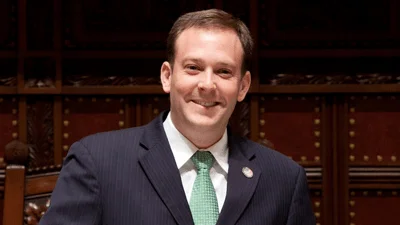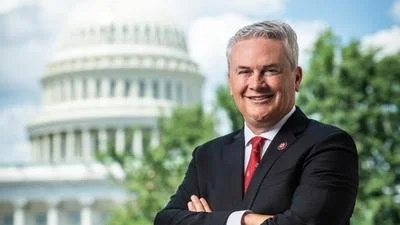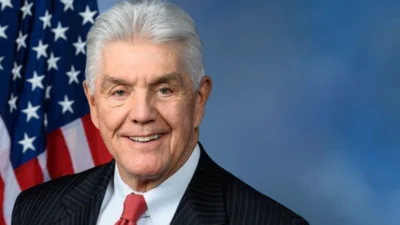Washington, D.C. -Today, Rep. Jamie Raskin, the Chairman of the Subcommittee on Civil Rights and Civil Liberties, held a hearing to examine the Biden Administration’s unprecedented whole-of-government strategy to combat domestic violent extremism, as well as how federal law enforcement will balance these new investigative and enforcement priorities with the need to safeguard the civil rights and civil liberties of all Americans.
“We are facing an unprecedented situation in which senior political leaders-up to and including the former President-have been actively promoting corrosive, anti-democratic messages that circulate paranoia, cynicism, and violence," said Chairman Raskin in his opening statement. “This cesspool of conspiracy thinking is activating unstable individuals predisposed, because of a mixture of ideological grievances and personal disappointments, to commit violence. This is a problem that demands the attention of all of us, and indeed, everyone in the country who believes in the constitutional order."
The Subcommittee heard testimony from John D. Cohen, the Coordinator for Counterterrorism at the Department of Homeland Security (DHS), Timothy R. Langan, the Assistant Director for the Counterterrorism Division at the Federal Bureau of Investigation (FBI), and Brad Wiegmann, the Deputy Assistant Attorney General for the National Security Division at the Department of Justice.
The counterterrorism officials explained the necessity of a whole-of-government approach that involves leveraging resources at the local, state, and federal level.
* “The National Strategy adopts a whole-of-government approach to preventing domestic terrorism and reducing the factors that fuel it," Mr. Langan and Mr. Wiegmann noted in joint testimony submitted to the Subcommittee. “The Strategy recognizes that, to find sustainable solutions, we must not only disrupt and deter terrorist activities, but also address the root causes of violence. It rests on four essential pillars, which will be implemented across the federal government and in coordination with non-federal partners."
* In his opening statement, Mr. Cohen expanded on that idea, explaining that “the Department is embracing a whole-of-society approach to combating domestic terrorism by building trust, partnerships, and collaboration across every level of government, the private sector, non-governmental organizations, and the communities we serve, while vigilantly safeguarding guaranteed First Amendment protections."
The witnesses also detailed the Biden Administration’s strategy to strengthen the federal government’s response to violent domestic extremists who are motivated by political and ideological grievances, false narratives, and conspiracy theories.
* When asked by Chairman Raskin about the role that mainstream figures play in the spread of disinformation promoted by foreign adversaries and domestic violent extremists, Mr. Cohen argued that “when public figures, whether they be in the media, whether they are elected officials, or former elected officials, amplify and spread those narratives, they validate them." He added, “When these disinformation narratives are amplified by public figures, it not only supports our adversaries, but it brings more volatility to threat environment."
Members also pressed witnesses to explain how the new counterterrorism strategy will avoid infringing on the civil rights and civil liberties of all Americans, including minority communities who have previously borne the brunt of intrusive federal surveillance.
* In response to questioning from Rep. Pressley about how the new Strategy encourages DHS to emphasize the protection rather than the surveillance of marginalized communities, especially in light of criticisms of the former Countering Violent Extremism (CVE) program, Mr. Cohen admitted that “there were issues with the CVE program." He further explained: “There was a perception that the CVE program, which started with good intentions was mainly a subterfuge to facilitate surveillance of communities of color, Arab American, and Muslim communities. That’s why we’ve done away with it. That’s why the approach we’re taking in the Biden Administration is antithetical to the approach that we took as part of the CVE program."
* Rep. Ocasio-Cortez pressed the witnesses about the Strategy’s focus on detecting insider threats within law enforcement, asking “what happens when the FBI does find instances of white nationalists in local law enforcement?" Mr. Langan confirmed that “there is no central method to notify the FBI about violent extremism," including within law enforcement. Mr. Langan promised to follow up on the Subcommittee’s request for more information about setting up a national reporting structure to help the FBI track white supremacist infiltration of law enforcement, which was made during the Subcommittee’s ongoing investigation into the issue.
In May 2019, the Subcommittee on Civil Rights and Civil Liberties began examining the rise of white supremacist violence and its connection to the recent surge of domestic violent extremism. The Subcommittee held its first hearing in May 2019, focusing on the ways in which the Trump Administration made it more difficult to combat violent extremism, including by reducing resources and infrastructure needed to combat white supremacist extremism.
In June 2019, the Subcommittee held a second hearing with Trump Administration officials who admitted they lacked a strategic plan to combat white supremacist violence. In September 2019, the Subcommittee held a joint hearing with the National Security Subcommittee on the transnational nature of violent white supremacy. In September 2020, the Subcommittee heard testimony on white supremacists in law enforcement and initiated an ongoing investigation into the threat.
Following the January 6th insurrection, the Subcommittee held a fifth hearing, raising the alarm about the dangers of far-right militia extremism and the ideological connection between white supremacy and the far-right militias who perpetrated the attack on the Capitol building.








